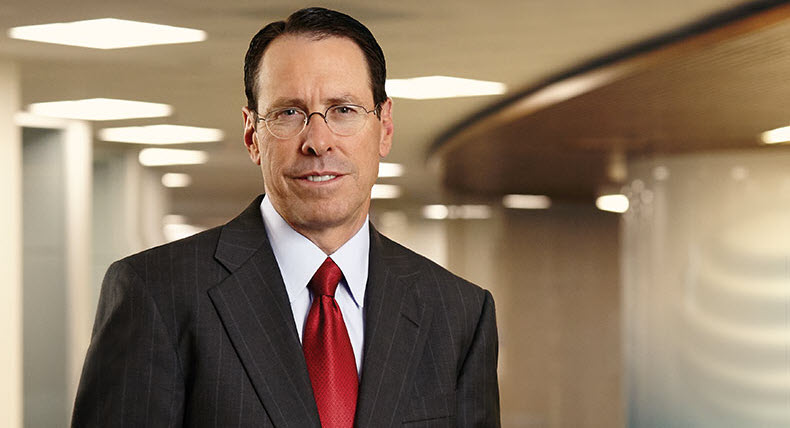Stephenson: Netflix is ‘Walmart’; HBO is ‘Tiffany’
The smarter way to stay on top of the multichannel video marketplace. Sign up below.
You are now subscribed
Your newsletter sign-up was successful

AT&T chairman and CEO Randall Stephenson played the role of proud content parent at an industry conference Wednesday, patting his own HBO premium channel on the head while tweaking the nose of rival Netflix, calling the SVOD pioneer the “Walmart” of video streaming.
"HBO is a very, very unique asset," Stephenson said at the Goldman Sachs Communacopia Conference Sept. 12. "I think of Netflix kind of as the Walmart of SVOD; HBO is kind of the Tiffany. It’s a very high-end brand for premium content."
AT&T finalized its purchase of HBO parent Time Warner Inc. in June, and the telco has been vocal in its plans to increase audience engagement with its new content assets.
WarnerMedia chief John Stankey has spoken previously about increasing programming investments at HBO, which currently spends about $2 billion year on original programming. Netflix, in contrast, spends about $8 billion on original shows.
Stephenson echoed Stankey’s strategy, adding that the idea is to spend wisely.
“You’d like to fill out the schedule with a lot of other premium content,” Stephenson said. “We’re not talking about Netflix-like investments. Something that retains the quality of the brand, retains the quality of the content, but just gives a little more fulsome lineup and schedule of content.”
Stephenson called HBO chief Richard Plepler a “master” at identifying and programming this type of content.
The smarter way to stay on top of the multichannel video marketplace. Sign up below.
“He is very bullish to have a modest amount of additional investment that he can really begin to do what we’re talking about here,” Stephenson said of Plepler. “This is not about getting to Netflix-level of content investment on HBO itself, but really just kind of filling out the schedule.”
The AT&T chief didn’t put a number on how much HBO’s budget would increase, but said the additional funds would mostly come from synergies in putting together the businesses.
“There’s a lot of opportunity at Warner Media to mine out some overhead costs,” Stephenson said.
While AT&T continues with its integration of the Time Warner assets, the federal government is gearing up for its appeal of the court ruling that gave the greenlight to the deal. The U.S. Dept. of Justice had argued that the AT&T–Time Warner union violated anti-trust regulations and would lead to higher prices for content. A federal court disagreed, clearing the path for the merger in June. The DOJ decided to appeal that decision in July.
Stephenson said he was confident of AT&T’s position in the appeal, adding that it is the burden of the government to prove that the previous ruling was incorrect. He added that he expected the litigation to wrap up in January or February of 2019, adding that the company is not sweating out a decision.
“The transaction is closed,” he said. “We are about executing on Time Warner integration. The integration is going quite well. The teams are spending zero effort thinking about the appeal.”
